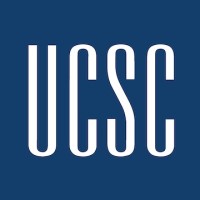Bachelor of Science in Science Education (Bachelors)
UC Santa Cruz
Santa Cruz, CA
Twenty-first century science educators must be able to help their students develop and apply a scientific perspective to a wide range of information. The science education major is designed to prepare future secondary science teachers in California with a broad background across the sciences—the physical sciences, life sciences, Earth sciences, and space sciences—with advanced specialization in two fields of science (chosen from physics, chemistry, biology, and Earth sciences). The major integrates education coursework and middle and high school classroom internships designed to develop skills and knowledge relevant to teaching K-12 students in the state of California. The major is mainly intended to prepare students for teacher certification programs and the California Subject Examinations for Teachers (CSET), so that they can teach science in California high schools.
Cal Teach is one home base for all students in this major, no matter the choices for specialization. Cal Teach (CaT) provides the required sequence of middle and high school-based internships and associated courses in partnership with schools throughout Santa Cruz County. Each internship placement depends on school schedules and the intern’s schedule, interests, and academic preparation. The CaT seminar courses provide the framework for science education majors to develop classroom-management strategies, practice communicating scientific concepts for non-specialists (children), and design lessons to teach the science standards currently used in K-12 education. Departmental advising is provided by the Physics Department and the program faculty.
The program is designed to prepare outstanding candidates to enter teaching credential programs after completion. Students earn a Bachelor of Science (B.S.) degree. They do not earn a teaching credential. Most students elect to complete this after graduation. Details of how to prepare for admission to a teaching credential program are available on the Education Department's Careers in K-12 School Teaching page.
Kết quả học tập của chương trình
Learning outcomes summarize the most important knowledge, skills, abilities, and attitudes that students are expected to develop over the course of their studies. The program learning outcomes communicate the faculty’s expectations to students, provide a framework for faculty evaluation of the curriculum based on empirical data, and help improve and measure the impact of implemented changes:
✔ Students will demonstrate knowledge and an understanding of scientific connections across the broad spectrum of the sciences.
✔ Students will demonstrate advanced knowledge in two areas of specialization.
✔ Students will show that they have learned laboratory skills in multiple scientific fields, enabling them to take measurements in a laboratory and in the field and analyze the measurements to draw valid conclusions.
✔ Students will communicate scientific concepts effectively and accurately, both orally and in writing, for both college-level and secondary audiences
✔ Students will apply strategies to address a diversity of K-12 learners’ needs.






